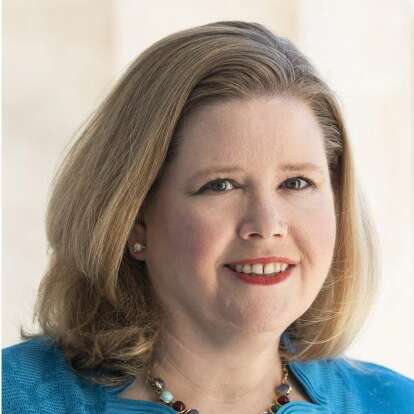Hubbard Radio Washington DC, LLC. All rights reserved. This website is not intended for users located within the European Economic Area.
On Air: Federal News Network
Understanding the new rules for the mentor-protégé program
December 7, 2021
During this exclusive webinar Emily Murphy, the CEO of Coaching International and former GSA administrator, and Angela Styles, partner with Akin, Gump, Strauss, Hauer & Feld and former OFPP administrator will discuss what the updates to the mentor-protégé program mean for small and large businesses. In addition, Dr. Sue Coates, the adjunct professor of organizational studies at the Anderson School of Management, University of New Mexico will provide an industry perspective.
Date: On demand
Duration: 1 hour
Cost: No Fee
Until the 2013 Defense authorization bill, the only mentor-protégé program at the Small Business Administration was for 8(a) companies, while other agencies ran their own programs with varying degrees of success and approaches. In some cases, mentors got credit toward their subcontracting goals for simply sponsoring agency small business conferences. There were no standard measures of success. The 2013 law created minimum standards for non-Defense agency programs that would have to be approved by SBA, and expanded SBA’s program to all small businesses.
It then took SBA eight years to finalize the rules—from 2012 to November 2020.
Agencies and vendors recently “celebrated” the one-year anniversary of these significant changes to the mentor-protégé program.
Some agencies, like the departments of Homeland Security and Defense, have been slow to adopt the SBA standards while others have discontinued their individual programs and will rely on SBA.
With this major change in the mentor-protégé program, what should companies and agencies keep in mind and how can they both be successful?
Emily Murphy, a partner and coach at CEO Coaching International and a former administrator of the General Services Administration, said now that SBA and contractors have a standard set of measures to understand what success looks like, the program is more valuable than ever.
“One of the other concerns we had was that a small business might spend resources to get a mentor-protégé program approved at, say GSA, but then they couldn’t use that mentor-protégé program when going after work at DHS, so then had to go get enter into the DHS mentor-protégé program. And if they wanted to expand then to the Department of Interior, they had to find yet another mentor-protégé program. So we had companies that were collecting mentor-protégé programs without really getting any benefit from them,” Murphy said during the discussion The New Mentor-Protégé Program for Small, Large Businesses. “This [new rule] means that there’s only one program that they have to apply for now and that’s a statutory program, so there is SBAs and one at DoD, but it’s not a question of whether you have to have both because you do not.”
Murphy said the impetus to expand and standardize the program came from the success Congress saw within the 8(a) mentor-protégé program.
“To have other programs out there that were having small businesses spend resources and energy, but there were no actual measure of success for those programs, and potentially liability associated with the programs didn’t seem like a good direction for the government to be pointing those businesses,” she said. “Instead, the idea was let’s take a program that works and expand it and open it up to other businesses other so all small businesses could participate.”
When a small firm decides to enter the mentor-protégé program, they are eligible to receive up to seven different types of technical assistance from their mentor.
These include everything from technical assistance on things like cost and pricing to assistance on business development facilities to international trade assistance.
“There are all sorts of ways that they can then receive help technical assistance, including and not but not limited to, they can receive help with procurement and in terms of actually performing contracts together. They can agree in their mentor-protégé program that to acts as a subcontractor to their mentor. But they can then also agree that they intend to form a joint venture has to be separately approved. But that joint venture then can go after work, using the small businesses status, to pursue contracts that might be a reach for the protégé on their own. And they can use the past performance of their mentor as well as the past performance of the protégé when they’re applying for those contracts,” Murphy said.
Angela Styles, a partner with the law firm Akin, Gump, Strauss, Hauer and Feld and a former administrator of the Office of Federal Procurement Policy, said the relationship is as much about learning how to operate the business as a government contractor to they have long-term success as the anticipation of winning contracts.
“If you’re ultimately going to be affiliated, whether it’s economic dependence or whether it’s their percentage of ownership, at the end of the day you want to be your own business that if you’re small, you can continue to compete is small and not be affiliated with your mentor,” she said. “The mentor-protégé program making it easier. It is so hard for small businesses to understand federal procurement and to access the federal procurement system that this is a path that should be much easier for them.”
Murphy, who provides coaching to small and large firms, added the companies need to focus on what is the expertise they are trying to acquire through the technical assistance, and the contracting is the “icing on the cake.”
“I would strongly advise my clients that when they’re considering entering into a mentor-protégé agreement, you don’t want to get married before you’ve had a date. So you probably want to have some experience of working together because you’ve got a two-year minimum commitment to each other and you want to know that you’re going to work well together,” she said. “If this is just a marriage of convenience to get contracts, it may not serve you well in the long run. If this is actually a joint venture, where the two of you are going to be able to really complement each other, and you it’s a case where one plus one equals three, then the mentor-protégé agreement in a joint venture make a lot of sense.”
Styles added it’s important for small businesses to protect their intellectual property when they are entering into an agreement with another company.
“The one thing you should always hire a lawyer for is to make sure that your intellectual property is adequately protected because the last thing you want to do is build this great business and be giving over your intellectual property to either your mentor or to the federal government,” she said. “Unfortunately, it happens all the time. The government has become more aggressive and wanting more rights and intellectual property. I think larger businesses many of them aren’t as creative at developing new intellectual property, so part of what they’re out there looking for is companies to buy, but also the intellectual property of particular small businesses that may help their business in the long run.”
Learning objectives:
- Updates to the Mentor-Protégé Program
- Benefits and Challenges of Joint Ventures
This program is sponsored by 
Complimentary Registration
Please register using the form on this page or call (202) 895-5023.
By providing your contact information to us, you agree: (i) to receive promotional and/or news alerts via email from Federal News Network and our third party partners, (ii) that we may share your information with our third party partners who provide products and services that may be of interest to you and (iii) that you are not located within the European Economic Area.
Please register using the form on this page.
Have questions or need help? Visit our Q&A page for answers to common questions or to reach a member of our team.
Speakers

Emily Murphy
Partner, CEO Coaching International and former GSA Administrator

Angela Styles
Partner, Akin Gump Strauss Hauer & Feld and former OFPP Administrator

Dr. Sue Coates
Adjunct Professor, Organizational Studies, Anderson School of Management, University of New Mexico
By providing your contact information to us, you agree: (i) to receive promotional and/or news alerts via email from Federal News Network and our third party partners, (ii) that we may share your information with our third party partners who provide products and services that may be of interest to you and (iii) that you are not located within the European Economic Area.
